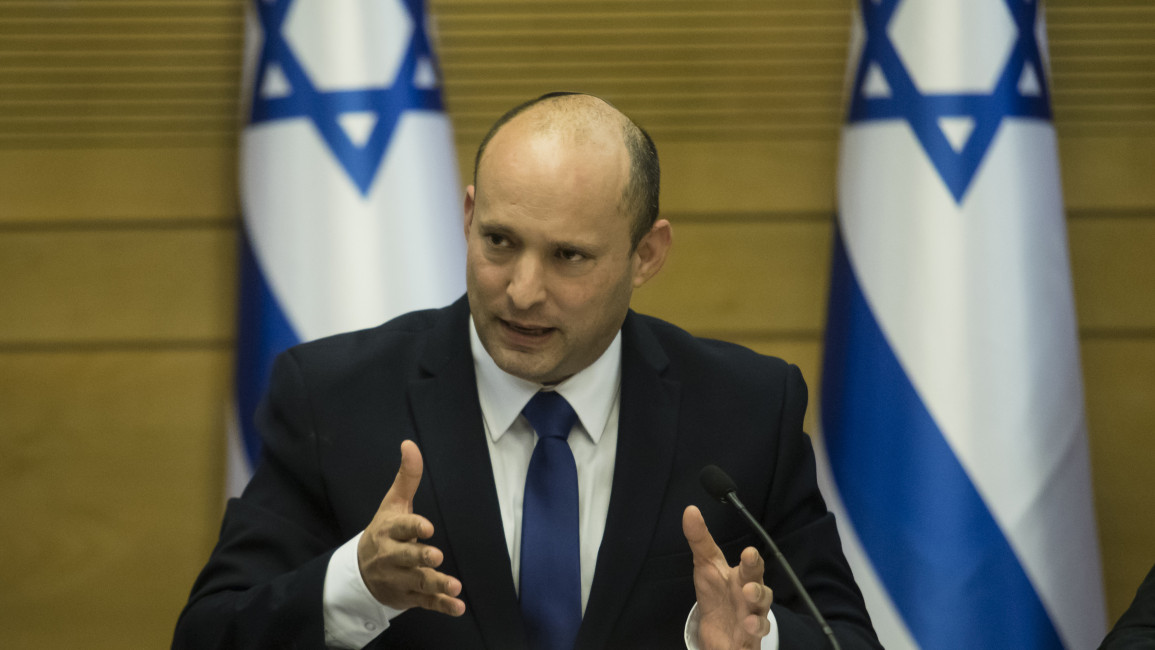Israeli PM says revived Iran nuclear deal would lead to a 'more violent' Middle East
Israeli Prime Minister Naftali Bennett said on Sunday that a US-Iranian deal taking shape to revive Iran's 2015 nuclear agreement with world powers is weaker than the original arrangement and would lead to a more violent Middle East.
The 2015 deal limited Iran’s enrichment of uranium to make it harder for Tehran to develop material for nuclear weapons, in return for a lifting of international sanctions against Tehran. But it has eroded since 2018 when then-President Donald Trump withdrew the United States and reimposed far-reaching sanctions on Iran.
"The emerging deal, as it seems, is highly likely to create a more violent, more volatile Middle East," Bennett said in a speech in Jerusalem to Jewish American leaders.
The aim of the nuclear talks in Vienna is to return to the original bargain of lifting sanctions against Iran in exchange for restrictions on its nuclear activities that extend the time it would need to produce enough enriched uranium for an atomic bomb if it chose to.
Iran says its nuclear ambitions are peaceful.
Bennett said the biggest problem in current negotiations was the possibility of the shorter timeline - two and a half years - before Iran could freely operate advanced centrifuges, since the original timeline may not be extended.
"Israel will not accept Iran as a nuclear threshold state," he said, reiterating a long-standing position, at the Conference of Presidents of Major American Jewish Organizations. "Israel will always maintain its freedom of action to defend itself."
(Reuters)


![Minnesota Tim Walz is working to court Muslim voters. [Getty]](/sites/default/files/styles/image_684x385/public/2169747529.jpeg?h=a5f2f23a&itok=b63Wif2V)




![Israeli officials are considering exiling Yahya Sinwar to Sudan as part of a deal to end the war [Getty]](/sites/default/files/styles/image_330x185/public/1251837582.jpeg?h=127ba027&itok=ujxSRy_f)
![Debris near Rafic Hariri International Airport [Getty]](/sites/default/files/styles/image_330x185/public/2176162423.jpeg?h=a5f2f23a&itok=MCSK9mkM)
![An Israeli air strike on Jabalia killed teenage journalist Hassan Hamad [Screengrab/X]](/sites/default/files/styles/image_330x185/public/2024-10/hassan%20hamad1.jpg?h=c12e0b96&itok=Rd_dyCVp)